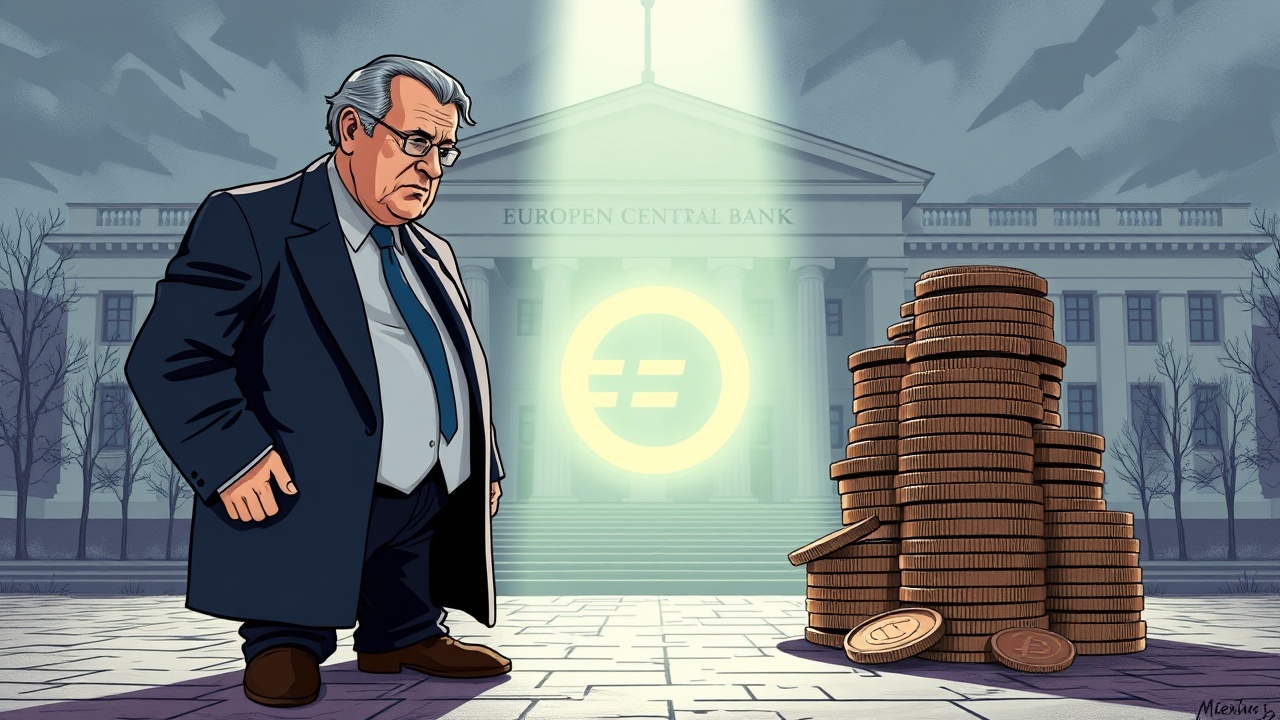The Digital Euro Proposal
The European Central Bank (ECB) is once again advocating for the introduction of a digital euro, a proposal that has met with resistance from lawmakers in the European Union who are anxious about privacy safeguards and the implications for traditional banking systems. In a recent address to a parliamentary economic committee, Piero Cipollone, a member of the ECB board, emphasized the importance of a digital euro as a universally accepted method of payment, especially during emergencies or significant disruptions.
Political Landscape and Concerns
The initiative to create a central bank digital currency (CBDC) has been under consideration by the European Parliament since 2023, encountering delays largely due to political debates and the approach of the 2024 elections. Proponents, including Cipollone, argue that the digital euro will bolster Europe’s ability to act independently in the financial sector, currently dominated by foreign providers, which raises concerns about the EU’s resilience in crises.
Cipollone described the digital euro as a necessary alternative during cyberattacks or system outages, a move that could align the eurozone with global trends, particularly as the U.S. advances its dollar-backed stablecoins.
He assured that the digital currency would ensure the continued relevance of cash, which he views as crucial for financial inclusion, stating that the government should facilitate digital transactions that are integral to modern daily activities.
Privacy and Banking Sector Concerns
However, various parliament members expressed anxiety regarding the potential erosion of user privacy and the fear that citizens might prefer holding accounts with the ECB over traditional banks, which could destabilize the private banking sector. In response to these concerns, Cipollone reassured stakeholders that transactions involving a digital euro would remain private, stating that the central bank would not track payer or payee information.
Critics like Pierre Pimpie from the Eurosceptic Patriots for Europe party highlighted the risks of depleting private bank accounts if a digital euro became available, and challenged the ECB’s authority over setting account limits that could be altered during crises.
Cipollone insisted that any restrictions would stem from a thorough evaluation, addressing concerns that it could lead wealthy individuals to shift assets to stablecoins amid financial turmoil.
Future Outlook
Looking ahead, Cipollone mentioned that the target for establishing the legal framework for the digital euro is set for the second quarter of 2026. The ECB’s plan depends on approvals from three major EU bodies: the European Parliament, the European Commission, and the European Council, with negotiations expected to take considerable time. Assuming the law is enacted by mid-2026, the implementation and testing phase for the infrastructure could extend over three years, potentially delaying the rollout until around 2029 if all goes smoothly.




